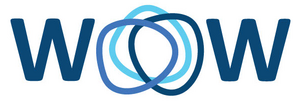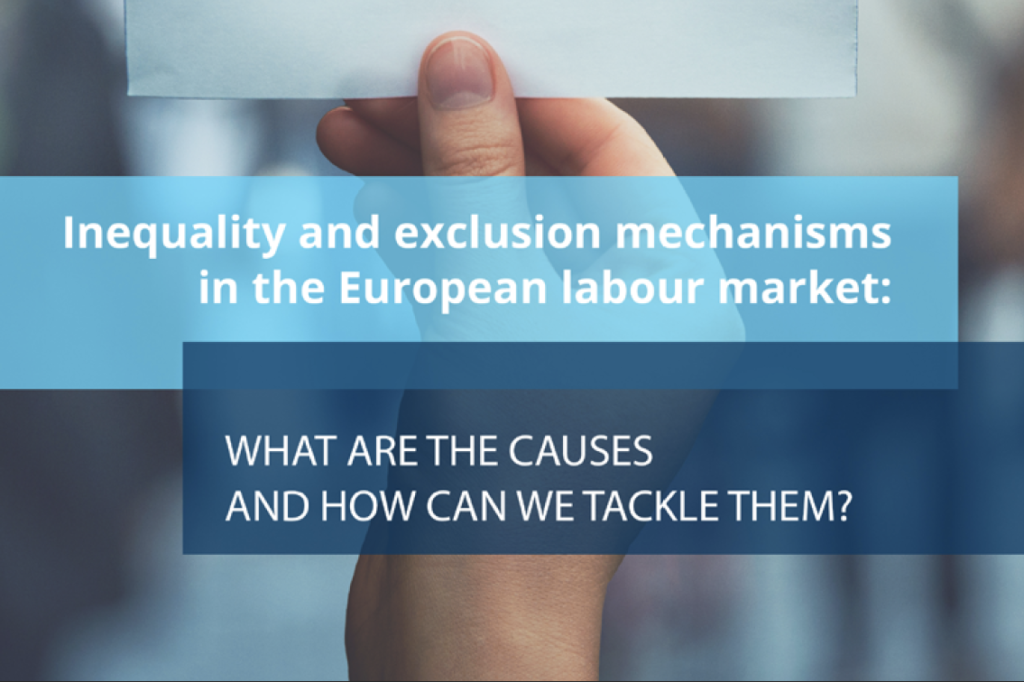Gender justice and the inclusion of migrants, LGBTQ+ and people with disabilities in the European labour market: these were the topics addressed by the 100 or so participants at this year’s EZA kick-off seminar, which was organised by the EZA secretariat together with EUROMF and the International Platform for Equal Opportunities (IPEO) with the support of Beweging.Academie, Europees Forum and ACV BIE Internationaal.
Due to the ongoing COVID-19 crisis, the kick-off seminar was held online for the first time, under the title «Mechanisms of inequality and exclusion in the European labour market: what are the causes and how can we combat them».
The two-day conference focused on two of the European Commission’s most topical policies: the Gender Equality Strategy 2020-2025 and the EU Strategy on Gender Equality for lesbian, gay, bisexual, transgender, non-binary, intersexual and queer people (LGBTIQ) published a week earlier.
«I will not rest when it comes to building a Union of equality», EU Commission President Ursula von der Leyen announced when she took office. This is a good starting point for the message of Helena Dalli, EU Commissioner for Equality, who addressed the participants with a video: «Living as a woman in Europe is not bad. But not bad is not good enough», said Dalli.
Lesia Radelicki, a member of Dalli’s cabinet, explained that the whole European Commission should be gender-sensitive. To this end, a task force has been set up which, among others, will include the equal opportunities officers of the Directorates-General. Gender-sensitive answers were also being sought to deal with the COVID-19 crisis. «The individual Commissioners are called upon to work closely together on this. The aim is to ensure that everyone in society enjoys equal rights. No-one should be discriminated against», said Radelecki.
In his welcome address, EZA President Luc Van den Brande called for increased efforts to include disadvantaged people in the European labour market. «Much progress has been made throughout Europe. But in the current COVID-19 crisis, many achievements are in danger of being lost, especially with regard to gender equality», Van den Brande expressed his concern. Young people and migrants are also being particularly affected by the pandemic.
Gender equality
The exchange with EU representatives was followed by the kick-off seminar featuring scientific expertise and specific case studies and looking at a 30-hour working week with full wage compensation. Jeroen Lievens presented a case study about how to reduce working time – a project by Femma, the women’s network of beweging.net. The 58 employees were able to reduce their working time to 30 hours per week for one year with full wage compensation to achieve a better balance between paid and unpaid work and to show more appreciation for family work. The result was a better quality of life and greater private and professional satisfaction.
Marieke van den Brink, Professor of Gender Equality and Diversity at Radboud University Nijmegen, spoke about how inequality is maintained or even increased by organisational processes in companies and public authorities. She stated that gender inequality in the workplace varies greatly from sector to sector. There are still very few women in management positions. At the same time, there are more women than men in precarious employment, more women in part-time work and on parental leave. She presented different theories for achieving greater equality at the workplace and stressed the importance of organisational structures and inclusive leadership. Diversity must be allowed to exist in order to reap its benefits.
LGBTQ+
Ellen Delvaux, IDEWE, External Service for Prevention and Protection at Work in Flanders, gave an overview of the legal framework in the EU. Existing directives on health and safety at work and equal rights in the workplace include LGBTQ+, but LGBTQ+ people still experience discrimination. She highlighted the LGBTQ+ group as a risk group in terms of psychological stress at work and underlined their disadvantage in terms of career entry, career opportunities and earnings.
Ellis Aukema from the Flemish umbrella organisation of LGBTQ+ organisations named education and raising awareness as the key to greater acceptance in society and presented the PREVENT project.
Migrants
Patrizia Zanoni, Professor of Organisational Studies at the University of Utrecht, gave an overview of the situation for migrants on the labour market in the EU. Migrant workers often have precarious or part-time jobs. Many of them have no representation at all. Migrants from outside the EU in particular are at high risk of poverty. Zanoni emphasised that migrant workers are not a homogeneous group, but rather ‘superdiverse’. Zanoni also addressed demands to workers’ organisations, which historically have not always been pioneers of inclusion. For a long time, the focus had been on «the ideal worker». Mobilising migrants is now a major issue for workers’ organisations. If they want to continue to play a significant role on the political stage, they must become more diverse. A balanced representation of workers is needed.
People with (work-related) disabilities
Eline Jammaers, Professor at the Catholic University of Louvain, reminded the participants that one in six people worldwide has a disability. The world of work is often not adapted to disabilities, with the result that very few people with disabilities find a job. Employment quotas for workers with disabilities can be helpful, as is the case in some Central European countries.
The demands
Heidi Rabensteiner, coordinator of the International Platform for Equal Opportunities (IPEO), concluded the kick-off seminar by calling for childcare and care time to be credited towards pensions and for an improvement in the career opportunities for women in management positions. Flexible working hours for women and men were absolutely necessary to enable a better sharing of family responsibilities, together with equality in career opportunities and remuneration. Unpaid work must also be shared more fairly between the sexes.
Source: https://www.eza.org/en/news/items/eza-kick-off-seminar-2020





